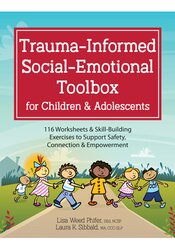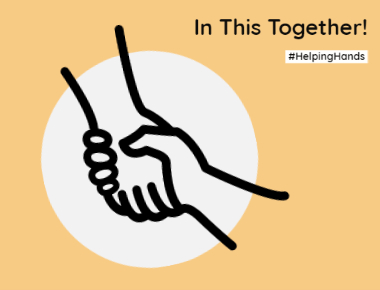In This Together!
During these challenging times, I hear “everything has changed.” But is that really true? (Activity and free worksheet)

When I am working with children and families during these challenging times, this is a concept I run across frequently: everything has changed. But is that really true? While we are socially distanced, we are not socially isolated. This means that human connection and opportunities for self-discovery through our interactions are more important than ever before. In order to celebrate this, I reach for the worksheet "Helping Hands". When we experience hard feelings like confusion, isolation, and fear, we need to feel empowered to connect to our trusted friends for help and support.
Equally important is the recognition that we can be there for others when they need guidance. "Helping Hands" helps us recognize the importance of reaching out to others, and celebrates our feelings of accomplishment when we are able to help someone else.
Not everything has changed; we can still guide our emotional development, and build meaningful connections in order to become more resilient.

Written by expert clinicians, the activities in this workbook support a foundation of social-emotional language, an increase in consistency and routine, regulation of tough emotions, and the formation of connections with others.
Inside you will find 116 easy-to-use, solution-focused activities and worksheets developed with a trauma-informed lens that promote skills such as:
- Building a sense of safety in your environment
- Fostering trust and positive regard
- Establishing healthy coping skills
- Promoting problem-solving pathways
- Developing personal empowerment, confidence and wellness
Learn more about their educational products, including upcoming live seminars, by clicking here.
Learn more about their educational products, including upcoming live seminars, by clicking here.
Topic: Children and Adolescent Behavioral
Tags: Activity | Advice | How To | Kids | Mindfulness | Self-Compassion | Strategies | Success | Therapy Tools | Tools | Trauma | Trauma Treatment





